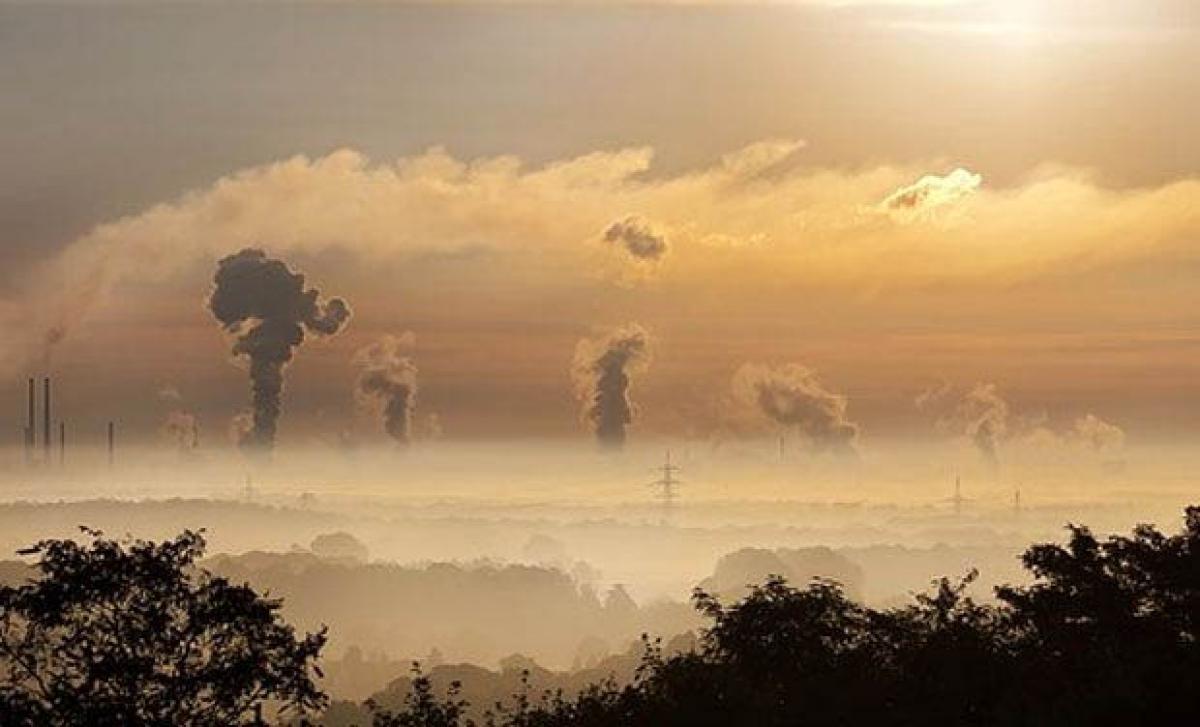Live
- Govt trying to grab lands for a song: BJP MP
- BRS an obstacle for investments: Jagga Reddy
- TGPSC all set for holding Group-III exams
- Delays dog LRS cases as applications pile-up
- TGSPDCL deploys 101 ERT vehicles
- JIH to host national conclave in city
- OU celebrates National Library Week with book exhibition
- Prakash Utsav to be celebrated today
- Survey staff turn a blind eye towards apartment dwellers
- Assembly to resolve on Constitutional amendment on age limit for legislators
Just In

x
Highlights
The richest 10 per cent of people produce half of Earth\'s climate-harming fossil-fuel emissions, while the poorest half contribute a mere 10 per cent, British charity Oxfam said in a study released today. Oxfam published the numbers as negotiators from 195 countries met in Paris to wrangle over a climate rescue pact.
The richest 10 per cent of people produce half of Earth's climate-harming fossil-fuel emissions, while the poorest half contribute a mere 10 per cent, British charity Oxfam said in a study released today. Oxfam published the numbers as negotiators from 195 countries met in Paris to wrangle over a climate rescue pact.
.jpg)
Disputes over how to share responsibility for curbing greenhouse-gas emissions and aiding climate-vulnerable countries are among the thorniest and longest-running issues in the 25-year-old UN climate process. "Rich, high emitters should be held accountable for their emissions, no matter where they live," Oxfam climate policy head Tim Gore said in a statement. "But it's easy to forget that rapidly developing economies are also home to the majority of the world's very poorest people and while they have to do their fair share, it is rich countries that should still lead the way."
The report said that an average person among the richest one per cent emits 175 times more carbon than his or her counterpart among the bottom 10 percent. Rich and developing nations remain deeply divided on the issue of "differentiation" -- how to share out responsibility for curbing greenhouse gas emissions, which derive mainly from burning coal, oil and gas. Developing countries say the West has polluted for much longer and should shoulder a bigger obligation for cutting back.
They also demand assurances of finance to help them shift to less-polluting renewable energy, shore up defences against climate impacts such as sea level rise, droughts and superstorms, and to cover damage that cannot be avoided. "We hope advanced nations will assume ambitious targets and pursue them sincerely. It's not just a question of historical responsibility -- they also have the most room to make the cuts and make the strongest impact," Indian Prime Minister Narendra Modi told Monday's opening of the summit by world leaders.
Yet many rich nations, led by the United States, reject the idea of a "bifurcated" approach with obligations placed on one group of countries, and not the other. They point to the risk of carbon emissions -- as measured by volume, rather than per capita -- from emerging giants such as China and India.
Oxfam said its analysis "helps dispel the myth that citizens in rapidly developing countries are somehow most to blame for climate change."
More On

Next Story
More Stories
ADVERTISEMENT
© 2024 Hyderabad Media House Limited/The Hans India. All rights reserved. Powered by hocalwire.com







